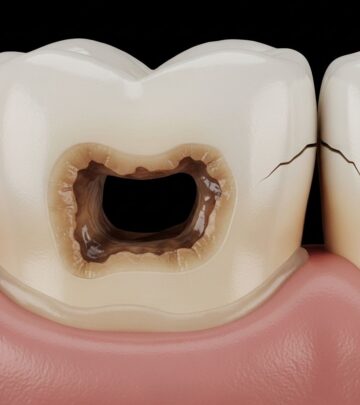Does Chocolate Act as a Laxative or Cause Constipation?
Explore the nuanced relationship between chocolate and digestive health, including its effects on constipation and why reactions vary.

Chocolate is celebrated worldwide as a beloved treat, but it is equally infamous for its alleged effects on digestive health. Many people claim that chocolate can cause constipation, while others believe it might help relieve it. What does the science say about chocolate’s impact on the digestive system? Does it truly act as a laxative, or is it more likely to impede bowel movements? This comprehensive article unpacks the latest research, addresses common perceptions, and provides practical advice for those concerned about chocolate and digestive comfort.
Chocolate and Constipation: Popular Perceptions Versus Scientific Evidence
For decades, the association between chocolate and constipation has been part of digestive folklore. In popular surveys and self-report studies, people with digestive issues frequently name chocolate as a food that triggers constipation. But is this reputation based on fact?
- Survey Insights: Studies show that individuals with chronic constipation or irritable bowel syndrome (IBS) often report chocolate as a culprit for worsening symptoms. In open-ended questions, chocolate is more frequently mentioned than most other foods as a potential cause of constipation.
- General Population: Among otherwise healthy individuals, the perceived constipating effect of chocolate is less pronounced, with fewer people experiencing adverse changes in bowel habits after consumption.
- Lack of Direct Evidence: Despite its reputation, scientific studies have not definitively established a direct causal relationship between chocolate—particularly the cocoa component—and constipation.
Understanding Constipation: Definition and Symptoms
Constipation is medically defined as having fewer than three bowel movements per week. Symptoms may also include:
- Hard, dry, or lumpy stools
- Difficulty or pain during bowel movements
- Sensation of incomplete evacuation
- Abdominal discomfort, bloating, or even hemorrhoids from excessive straining
It’s important to differentiate between temporary changes in bowel habits and chronic constipation, as causes can differ widely.
How Chocolate Might Affect Bowel Movements
The impact of chocolate on digestion can depend on product composition and individual sensitivity. Chocolate consists of several ingredients that could influence bowel habits:
1. Cocoa Solids and Fiber
Pure cocoa contains dietary fiber, particularly in the husks discarded during processing. Some research shows that cocoa husks, when consumed, may relieve constipation in children by increasing stool frequency and water content. However, most chocolate products contain only modest fiber due to processing and added sugars or fats.
2. Milk Content
Many popular chocolates are milk-based. Dairy is a known trigger for constipation in people with lactose intolerance or sensitivity. About 30% of those with lactose intolerance may experience bowel issues, including constipation, after consuming milk-containing products.
3. Sugar
The typical chocolate bar contains high amounts of sugar, which, when consumed in excess, can alter bowel habits and potentially slow digestion in some people. In children, a high-sugar diet has been linked to constipation.
4. Caffeine
Chocolate contains moderate levels of caffeine. While caffeine is sometimes associated with stimulating bowel movements, there is little evidence that the amounts found in chocolate have a meaningful effect—either positive or negative—on constipation risk.
| Ingredient | Possible Effect | Notes |
|---|---|---|
| Cocoa fiber (husks) | Laxative (in fibers form) | Not present in high amounts in most chocolate bars |
| Milk | Constipating (in sensitive individuals) | Lactose intolerance can worsen symptoms |
| Sugar | Variable | Excess may contribute to constipation, especially in children |
| Caffeine | Minimal effect | Much less than in coffee/tea; effect on bowel movements is weak |
Individual Differences: Why Responses to Chocolate Vary
People differ greatly in their responses to chocolate for several reasons:
- Sensitivity to Milk or Sugar: Those with lactose intolerance or sensitivity to high-sugar foods may be more likely to experience constipation after eating milk chocolate.
- Digestive Disorders: Individuals with IBS or other functional gut disorders seem more likely to report chocolate-induced changes in stool consistency, including both constipation and diarrhea.
- Overall Diet and Lifestyle: Diets low in fiber or water, combined with sedentary habits, can worsen constipation risk—regardless of chocolate intake.
Does Chocolate Ever Act as a Laxative?
Although chocolate is rarely recognized for its laxative properties, certain components related to cocoa processing—namely cocoa husks high in fiber—have demonstrated mild laxative effects in some clinical settings, especially in children. However, standard commercial chocolate products typically do not contain enough fiber to act as true laxatives for the average person.
In specific and high-fiber chocolate products (sometimes marketed as functional foods), laxative effects are more plausible but not common in everyday chocolate confections.
Common Causes of Constipation Beyond Chocolate
Chocolate is only one of many potential contributors to changes in bowel habits. Much more common causes of constipation include:
- Diets low in fiber (fruits, vegetables, whole grains)
- Insufficient water intake
- Certain medications (opioids, some antidepressants, calcium supplements)
- Digestive disorders (IBS, slow transit colon)
- Physical inactivity
- Excessive consumption of processed and fatty foods
Other foods frequently reported to cause constipation include bananas, white bread, eggs, red meat, and heavily processed snacks.
Can Dark Chocolate Help With Constipation?
Some people suggest that dark chocolate might be beneficial for constipation due to its higher cocoa content and fiber. However, clinical evidence is limited, and the effect is more pronounced in special products with added cocoa fiber rather than standard dark chocolate bars. It’s important to note that most dark chocolates also contain sugar and, in some cases, dairy, both of which can offset any fiber benefits.
How Much Chocolate Is Safe For Digestive Health?
If you do not notice any changes in your bowel habits after eating chocolate, there’s no scientifically backed reason to exclude it from your diet. However, moderation is key, given chocolate’s high fat and calorie content. For individuals who do notice a link between their chocolate intake and constipation, it may help to temporarily eliminate chocolate, monitor your symptoms, and gradually reintroduce small amounts to gauge your tolerance.
- If chocolate does not worsen your digestive health, moderate consumption is generally considered safe.
- For those with sensitivities (such as lactose intolerance or IBS), avoid or limit milk chocolates and sweets that may set off constipation or other symptoms.
When to See a Doctor About Constipation
Occasional constipation is common, but persistent or severe symptoms may signal a more complex health issue. Contact a healthcare provider if you experience:
- Constipation lasting more than two weeks
- Unexplained weight loss or blood in stools
- Severe abdominal pain
- No relief after dietary changes or over-the-counter treatments
Preventing and Managing Constipation
For most people, the best strategies for preventing and managing constipation include:
- Increasing dietary fiber through vegetables, fruits, legumes, and whole grains
- Drinking sufficient water daily
- Staying physically active
- Limiting intake of highly processed and high-fat foods (including some types of chocolate)
- Carefully considering the impact of other dietary items and medications
Over-the-counter remedies—such as stool softeners and laxatives—are available, but should be used under professional guidance if symptoms persist.
Frequently Asked Questions (FAQs)
Q: Does chocolate always cause constipation?
A: No, chocolate does not always cause constipation. While some people—especially those with digestive sensitivities or chronic conditions—may experience constipation after eating chocolate, scientific studies have not proven a direct link for the general population. Ingredients like milk or sugar in chocolate might be more culpable for symptoms in certain individuals.
Q: Is any type of chocolate safe for people prone to constipation?
A: Dark chocolate, with higher cocoa and lower sugar and dairy content, is less likely to precipitate constipation. Specialized high-fiber chocolate products may even help with bowel movements. Individuals should monitor their reactions and choose chocolate types accordingly.
Q: Can chocolate ever help relieve constipation?
A: Only special chocolate products high in cocoa fiber have demonstrated mild laxative effects, particularly in clinical studies involving cocoa husks. Regular chocolate bars, however, do not have enough fiber to relieve constipation in most people.
Q: What should I do if I think chocolate makes me constipated?
A: Consider removing chocolate from your diet temporarily to observe changes in your symptoms. If constipation resolves and returns with chocolate reintroduction, consider limiting intake or switching to types with less dairy and sugar. Consult with a healthcare professional or dietitian for tailored advice.
Q: What are other common constipation triggers in food?
A: Besides chocolate, common dietary triggers include bananas, white bread, red meat, eggs, and processed foods. Every individual reacts differently, so it’s beneficial to observe your own symptoms and discuss persistent issues with a health professional.
Key Takeaways
- Chocolate is more often linked to constipation by popular perception than scientific proof.
- Certain groups—notably those with IBS, lactose intolerance, or sensitivity to dietary sugars—may be at higher risk of digestive upset from chocolate.
- On the whole, chocolate’s effects are mild, and for most people, moderate consumption poses little digestive risk.
Understanding your own digestive sensitivities and maintaining a balanced, fiber-rich diet are central to enjoying chocolate without unwanted side effects.
Read full bio of medha deb












